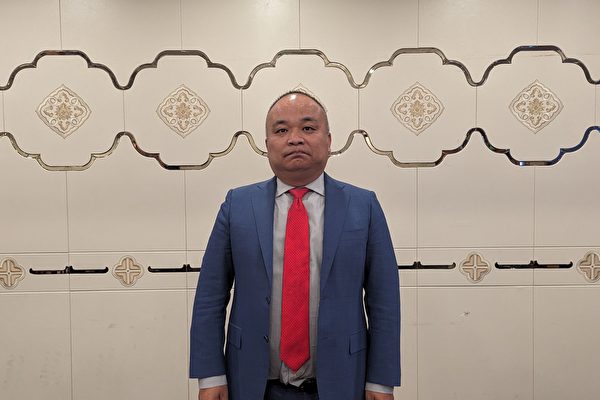Recently, the University of California, San Diego (UCSD) has introduced a new policy for selective major admissions, which will prioritize factors such as being a first-generation college student and coming from low-income families starting from the 2025 academic year. David Liu, a candidate for the 49th District of California and a Chinese-American lawyer in Southern California, criticized the policy, likening it to the preferential treatment given to the “poor and lower-middle peasants” in Chinese communist history, which he believes is unfair to many Chinese families.
Last fall, Stanley Zhong, a Chinese-American high school graduate from Northern California, gained nationwide attention as the latest “victim” of the so-called “affirmative action policy” in college admissions. Despite nearly perfect SAT scores and a weighted GPA of 4.42, out of 18 college applications, he was rejected by 16 institutions, including prestigious universities like Ivy League schools and UCSD.
The “affirmative action” policies emphasizing “racial preferences” have been implemented in U.S. college admissions for decades, although overturned by the Supreme Court in June last year, the underlying leftist ideologies continue to resurface in various forms.
Commenting on UCSD’s admission policy, David Liu explained that considering first-generation college students as well as students from low-income families is akin to prioritizing the “poor and lower-middle peasants.”
The term “poor and lower-middle peasants” refers to the categorization established by the Chinese Communist Party after its founding, which enjoyed certain privileges during the Cultural Revolution. Family background was a crucial category in the Chinese personnel files until the 1980s, influencing job opportunities and promotions within the system.
Liu pointed out that the inclusion of low-income families in UCSD’s preferential policies puts many Chinese families’ children at a disadvantage. He commended Chinese parents as among the best in the world, willing to make sacrifices to provide quality education for their children by working hard to increase family income and pay for their children’s education. During his time at Whittier Law School pursuing a doctorate, none of the six Chinese students in his class applied for loans because their parents didn’t want them to bear the burden of repayment.
However, prioritizing the admission of students from low-income families undermines the efforts of hardworking families. Just like Stanley Zhong, despite his outstanding academic achievements, he was shut out by all UC campuses he applied to.
Another criteria for admission under UCSD’s new policy is being a first-generation college student. Liu expressed concerns, stating he doesn’t have data proving that the new policy targets Chinese individuals, but many first-generation Chinese immigrant students in the U.S. are elite scholars. This barrier blocks the path for many Chinese students to attend this university.
Liu argued that university admission should evaluate the students themselves, not their family backgrounds. Implementing such policies may lead parents to regret pursuing higher education, putting their children at a disadvantage in pursuing further education.
He emphasized that this policy is analogous to the “poor and lower-middle peasants” priority policy in China, which he believes has now resurfaced in the U.S.
Liu believed that UCSD’s unfair admission policy will inflict “massive psychological devastation” on young people aspiring to enter good universities. It not only impacts students’ enthusiasm for learning but also makes them feel the society is unfair. Their passion for fairness and justice could be extinguished in an instant.
As a lawyer dealing with criminal cases, Liu highlighted the irony where children from families involved in drug trafficking or tax evasion could be prioritized for admission to UC schools, while children of law-abiding, hardworking parents might be sidelined.
Moreover, truly intelligent and gifted students may struggle to get into their desired universities, and even if they are admitted, mismatches could occur post-graduation. By replacing academic standards with skewed “political identity” criteria, universities might admit numerous unqualified students, potentially leading to high dropout rates.
Despite facing rejections from many universities, Stanley Zhong, a young high-tech entrepreneur, quickly received a job offer as an engineer from Google. By the end of last year, he mentioned contemplating attending the University of Texas (UT) within a year, which brought relief to those following his story.
Liu remarked, “One sows and another reaps.” He hoped that university admission policies would truly adhere to principles of equality and fairness, without causing harm to children from middle to high-income families. “We should not be stabbed in the back with a fatal blow just because we have sacrificed too much,” Liu concluded.

